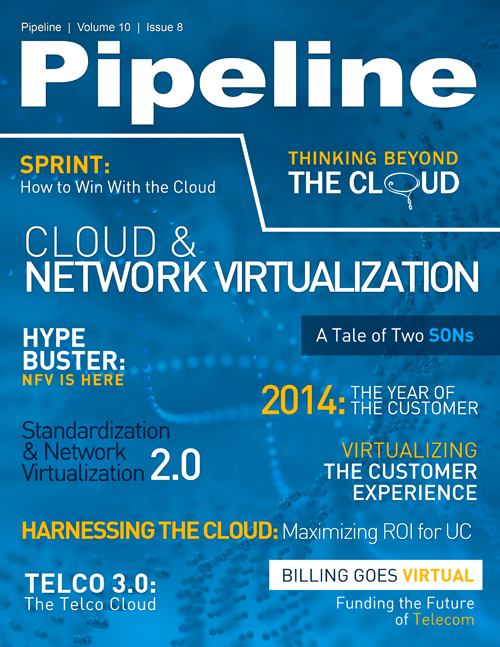COMET News: January 2014
By: Jesse Cryderman

Will SoftBank buy T-Mobile?
Now that T-Mobile has acquired MetroPCS and made an aggressive run in the market with its Un-Carrier strategy, what’s next for John Legere and company? Perhaps a sale to the Japanese.
According to a report published in Reuters on Christmas day, SoftBank is in final talks to acquire T-Mobile for somewhere in the neighborhood of $20 billion. The transaction would see SoftBank buyout the 67 percent of T-Mobile owned by Deutsche Telekom (DT).
Last July, SoftBank purchased the majority stake in Sprint and Clearwire. If SoftBank succeeds in the buyout, it will control assets of T-Mobile, MetroPCS, Sprint, and Clearwire to become the world’s number 2 mobile network operator (MNO), trailing Verizon.
Talks may be progressing, but this is far from a done deal. SoftBank isn’t the only Communications Service Provider (CSP) with eyes on T-Mobile; Dish Network is also reportedly considering a deal with the carrier. A bigger hurdle than a bidding war is the regulatory response—US regulators could potentially block the deal.
NSA fallout
The NSA wiretapping and digital espionage story wages on. Since June 2013, The Guardian and other news outlets have been breaking news from Edward Snowden's pilfered cache of classified documents. The latest revelations allege the NSA infiltrates mobile apps and online games, cracks cellular encryption, and has backdoor access into networks through equipment made by nearly every manufacturer, from Cisco to Huawei to Juniper.
Cisco came out swinging after the latest round of allegations. “We are deeply concerned with anything that may impact the integrity of our products or our customers’ networks and continue to seek additional information,” wrote Cisco’s chief security officer, John Stewart, in a blog post on the company’s website.
Pipeline has maintained that the controversy creates an opportunity for service providers to create and market security and encryption products. The trend is beginning; Deutsche Telekom beefed up its mobile encryption in early December to prevent unwarranted snooping. By implementing the new A5/3 encryption standard in its mobile network, DT hopes to dispel fears that are percolating through the populace. "Consumer trust in telecommunications and the Internet has taken a heavy hit in recent weeks, due to the NSA revelations," commented Thomas Kremer, a member of DT’s board, in a press release. Earlier in 2013, DT began advertising its super-secure email service with the “E-Mail made in Germany” initiative.
Are the activities of the NSA constitutional? That question is likely headed for the Supreme Court. In late December, a federal judge ruled that at least some of the NSA’s activities were indeed legal, which contradicted an earlier ruling.
M2M rising
Machina Research has published its annual M2M forecast, and the weather looks good. M2M connections are estimated to reach 18 billion by 2022, generating $1.3 trillion in revenue. Intelligent buildings and connected consumer electronics will be the hottest sectors, says Machina. The good news for mobile operators: cellular M2M connections are expected to grow from 3 percent today, to 22 percent by 2022.
Also good news: the M2M World Alliance has finally delivered something tangible. On December 17, it announced a multi-operator solution that will make seamless, global M2M connectivity much easier. Members of the M2M World Alliance include Etisalat, KPN, NTT Docomo, Rogers, SingTel, TelefĂłnica, Telstra and VimpelCom.
As Pipeline has reported, coopetition is the name of the game when it comes to global expansion. It’s not just new technologies like M2M that are causing CSPs to buddy up. In December, several other coopetition stories crossed the wire: AT&T and Bharti Airtel partnered to extend AT&T's next-gen businesses services to companies in India, and NTT Docomo, China Mobile, KT collaborated on Wi-Fi and LTE roaming to make seamless service throughout Asia a reality.



















